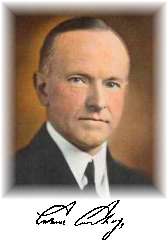 Letter
to the Editor
Letter
to the Editor
Castro
Valley Forum
Composed
By
 Alexandra
Matteucci, The Joseph Matteucci
Foundation for Youth Non Violence Alexandra
Matteucci, The Joseph Matteucci
Foundation for Youth Non Violence
 Dennis
Waespi, Sanitary District Dennis
Waespi, Sanitary District
 Doris
Shaw, Retired Office Supervisor Doris
Shaw, Retired Office Supervisor
 Irwin
Lazarus, Retired Teacher Irwin
Lazarus, Retired Teacher
 June
Wallace, Retired CV Teacher June
Wallace, Retired CV Teacher
 Joellen
Oslund, Capt. USNR, Retired Joellen
Oslund, Capt. USNR, Retired
 Mary
Drag, CV Community Activist Mary
Drag, CV Community Activist
 Marty
Hoag, Communication Consultant/Teacher Marty
Hoag, Communication Consultant/Teacher
 Pat
Burke, Baywood District Activist Pat
Burke, Baywood District Activist
 Professor
and Mrs. Mark Van Aken Professor
and Mrs. Mark Van Aken
 Roberta
Rivet, Municipal Advisory Committee Roberta
Rivet, Municipal Advisory Committee
 Ron
Meissner, Financial Consultant Ron
Meissner, Financial Consultant
 Sam
Bagby, Programming Consultant Sam
Bagby, Programming Consultant
 Suzanne
Barba, Member Eden Township Healthcare
District Suzanne
Barba, Member Eden Township Healthcare
District
These are mostly home
phone numbers so they would be reachable later in the day perhaps.
Dear
Editor:
 Many
of us who have endorsed the idea of cityhood for Castro Valley never did
so thinking that we wanted to transform the town. We want to preserve it;
revitalize it. You can't do that by letting others who don't live or work
here make all the decisions for you. That is what being incorporated is
all about. Many
of us who have endorsed the idea of cityhood for Castro Valley never did
so thinking that we wanted to transform the town. We want to preserve it;
revitalize it. You can't do that by letting others who don't live or work
here make all the decisions for you. That is what being incorporated is
all about.
Some say that this
is all very nice but we just can't afford to become a town. It's because
we have no industry, no big shopping centers or strings of auto dealerships
to generate a lot of tax dollars. If that were really true, how would you
explain the number of small towns that exist in California that don't have
these things? Within an hour's driving time of Castro Valley alone there
are a number of small towns with little or no industry and no major
shopping malls: Albany, Hercules, Pinole, Orinda, Moraga, Oakley,
Brentwood and many more.
What you need to
become a town is enough revenue to pay for police, street maintenance
and local planning and zoning. That is all that is being considered for
Castro Valley . The agency that is behind the Castro Valley study is called
LAFCO, Local Agency Formation Commision. It is not a special interest
group, as it is made up diversely of County Supervisors, City Council members
and Special Districts members within the County. LAFCO has the responsibility
of deciding whether Castro Valley can afford to provide these services
with the existing property and sales taxes, utility fees, plus what added
funds it gets from the State.
So far, LAFCO has
determined that Castro Valley can incorporate simply by adding the TOT,
or Total Transient Occupancy Tax, a hotel room tax paid by hotel guests,
not local residents. This is something that is pretty common in every town
in the bay area and would not affect local residents at all. The UUT, or
Utility Users Tax, is already in place. Although these sources of revenue
were not taken into account in the first draft of the study (which prematurely
heralded infeasibility), when they are included (along with the Dublin
model for the Sheriff 's budget) there is no problem with Castro Valley
cityhood affordability. The idea has always been to have the County continue
providing police and street services under a contract so that we could
keep costs to a minimum.
Castro Valley can
govern itself at no added cost to its taxpayers. It will work to protect
what is left of our hillsides and improve our business district without
asking anyone to do it for us. The decision makers will be local people
that Castro Valley residents choose for themselves.
We want to
preserve the good things we have but have the power to control changes
we don't want. Cityhood will allow us to do just that.
 |


![]()